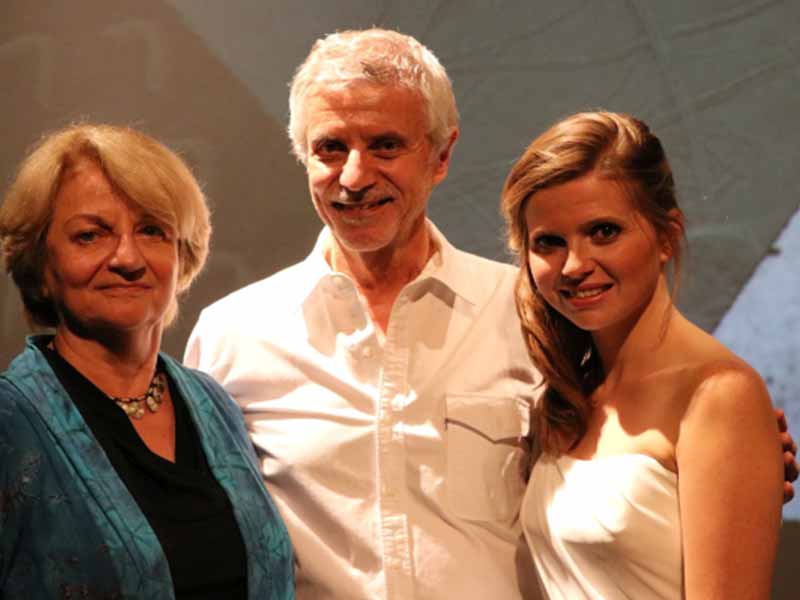When someone refers to a person’s life as a soap opera, they are usually speaking in metaphorical terms. But in Beverly Biderman’s case, her life has literally become an opera.
Her experience of being deaf and learning to hear with a cochlear implant, an electronic hearing device, was the inspiration for a new opera.
TMIE, standing on the threshold of the outside world, which was created by Portuguese composer, Carlos Alberto Augusto, debuted in Lisbon last month. Biderman, 70, was invited to join Augusto on stage when she attended the premier on Sept. 8.
“It felt wonderful,” she said. “Carlos even used a passage from my book as a libretto.”
Augusto created TMIE, after reading Biderman’s book, Wired for Sound: A Journey Into Hearing (Trifolium Books, 1998; the updated edition was reissued by Fitzhenry & Whiteside in 2016), which chronicles Biderman’s experience of being deaf and the ensuing challenges of learning to hear after she had a cochlear implant at age 46.
“It is not like a switch that you turn on. I gradually learned to hear with it.”
The retired systems analyst had a profound hearing loss from childhood.
After being deaf for almost 40 years, she was suddenly able to perceive sound, but she pointed out that she could not identify much of what she heard. “I had to make sense of all these new strange sounds that I would hear.
“I was fascinated with learning to hear. It wasn’t quick. Once I learned what a particular sound was, the next time I heard it, I would know what it was.”
Biderman gradually became deaf as a child through a progressive hereditary hearing loss. The gene was passed on to her by her father, who was also deaf.
She was born in Picton, Ont., but when she was 12, her family moved to Toronto. By that time, she was so deaf she could only lip read. “I could not use the telephone.”
The hearing deficit did not stop Biderman from marrying, attending university and having a fulfilling career in computer programming.
But the cochlear implant changed her life dramatically, she recalled. Until then, she said, “I didn’t realize how deaf I was.”
Her memoir, Wired for Sound, was cited as one of the Globe and Mail’s “100 notable books for 1998.”
In fact, a Hollywood producer optioned the book for a film, but was not able to get the funding to proceed, Biderman said.
Another person who read the book, R. Murray Schafer, the well-known Canadian composer, recommended it to his protege, Augusto. The Portuguese composer did a graduate degree in music in Canada and studied with Schafer.
“Carlos read my book and he contacted me by email a few years ago. He said he loved the book – it moved him tremendously,” Biderman said.
“He wanted to make an opera based on the book and he asked me for permission,” she recounted. “I told him, ‘Go ahead.’”
A few years lapsed before she heard from Augusto again. His wife had died in the interim. This year he told Biderman that he had found a producer and a soprano.
“‘I’m going for it,’ he said. ‘I’ve been wanting to do it for a long time.’”
The opening of the opera, which is in English, was postponed from the originally scheduled February debut, because the soprano got sick. The solo performer played three different parts, Biderman explained.
“The soprano was unbelievable. She sang in English with such emotion and passion. When she changed roles, she changed her expression, her posture and her singing style.”
